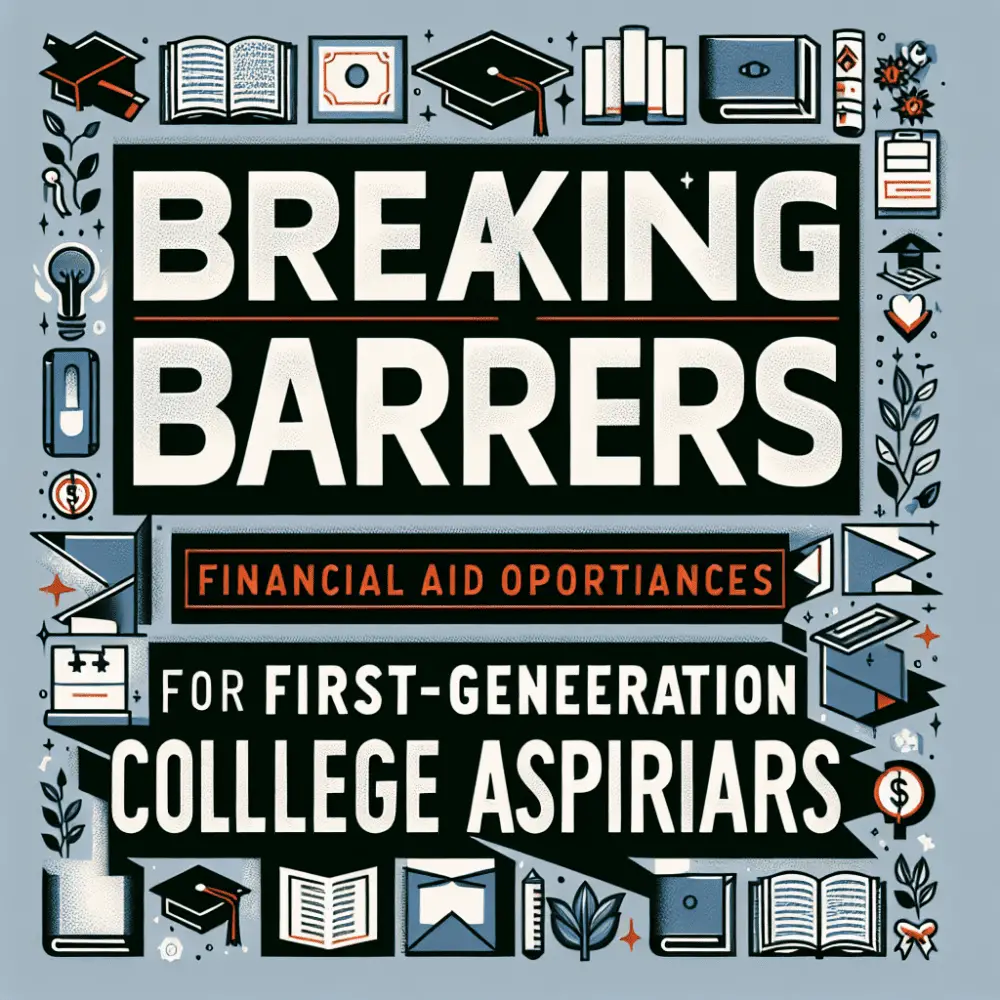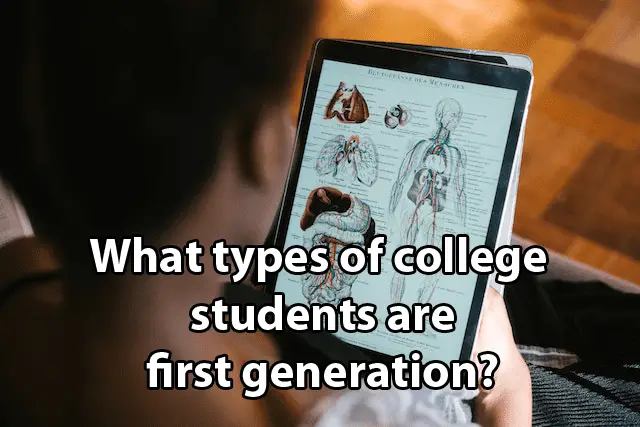
Breaking Barriers: Financial Aid Opportunities for First-Generation College Aspirants
First-generation college aspirants face unique challenges when pursuing higher education. With no parental precedent and often limited financial resources, the journey to a college degree can seem daunting. However, various financial aid opportunities can help clear these hurdles, making higher education accessible and affordable. Key resources include scholarships, grants, and financial education programs tailored specifically for first-generation students.
Understanding the Challenge
For many first-generation college students, the path to higher education is lined with obstacles. Often, these students come from lower-income families where parents have not attended college. This means they lack the first-hand experience and knowledge that can make navigating the college application and financial aid processes easier. Additionally, they tend to have heavier financial responsibilities, which can further complicate their academic pursuits.
Scholarships: A Gateway to Possibility
Scholarships play a crucial role in easing the financial burden for first-generation students. These merit-based or need-based financial aids provide much-needed funds without the obligation to repay. Here are some noteworthy scholarships designed to support first-generation college aspirants:
¥7,000 Bright Builders Civil Engineering Grant in China, 2024
For students pursuing civil engineering, the ¥7,000 Bright Builders Civil Engineering Grant in China, 2024, is a golden opportunity. This grant is specifically aimed at supporting first-generation college students who are aspiring civil engineers. It serves as an excellent financial cushion, allowing students to focus on their education without the constant stress of financial constraints. By offering funds covering essentials like tuition fees and study materials, this grant encourages academic excellence and professional growth.
$28,854 ANU 2022 PhD Scholarship in Plant Molecular Biology
The $28,854 ANU 2022 PhD Scholarship in Plant Molecular Biology is another significant financial aid option. Though this scholarship targets advanced studies, it illustrates the continuous support that first-generation students need throughout their educational journey. This PhD scholarship at the Australian National University provides comprehensive funding, including tuition fees and living expenses, ensuring that promising first-generation scholars can dedicate themselves fully to their research.
Grants: Bridging the Financial Gap
Grants are another form of financial aid that first-generation college aspirants can explore. These are typically need-based monetary awards that do not require repayment. Several private organizations and government bodies offer grants specifically for first-generation students.
Federally funded grants, like the Pell Grant, are invaluable for low-income students. By covering a significant portion of tuition costs, these grants provide a critical financial lifeline. For instance, the Federal Pell Grant caters to undergraduates who lack the financial means to afford college expenses. The eligibility is determined based on the student’s financial need, cost of attendance, and enrollment status.
Work-Study Programs: Combining Work and Study
Work-study programs offer students the chance to earn money while attending school. These programs, funded by the federal government or individual schools, enable students to gain valuable work experience related to their field of study while alleviating some financial stress. For first-generation students, work-study programs can be particularly beneficial as they help build a strong work ethic and professional skills alongside education.
Seeking Out Local and Private Scholarships
First-generation students should also look into local and private scholarships, which are often less competitive than national ones. These scholarships can come from community organizations, local businesses, or private donors who want to invest in the educational futures of promising students. Local high school counselors and college financial aid offices are excellent resources for finding these opportunities.
Navigating the Financial Aid Application Process
Applying for financial aid can be overwhelming, but several steps can simplify the process:
-
Complete the FAFSA: Start by filling out the Free Application for Federal Student Aid (FAFSA). This form is essential for accessing most types of federal and state financial aid. It’s advisable to complete the FAFSA as early as possible to maximize the chances of receiving aid.
-
Research Scholarships and Grants: Use online resources and consult school counselors to identify scholarships and grants relevant to first-generation students. Websites like Fastweb, Scholarships.com, and the College Board’s Scholarship Search are good starting points.
-
Prepare Application Materials: Gather necessary documents such as financial information, transcripts, and letters of recommendation. Write compelling essays that highlight personal challenges, achievements, and aspirations.
-
Submit Applications Early: Many scholarships and grants have early deadlines, so it’s crucial to submit applications well before the cutoff dates.
-
Follow Up: After submitting applications, follow up to ensure all materials were received and consider applying for additional opportunities during the academic year.
Leveraging Support Networks
Being a first-generation college student can feel isolating, but there are support networks available. Many colleges and universities have offices dedicated to supporting first-generation students. These offices provide resources such as academic advising, mentorship programs, and workshops on financial literacy and career planning. Additionally, joining student organizations and networking with peers can foster a sense of community and mutual support.
Financial Literacy: An Essential Skill
Understanding finances is crucial for managing college expenses effectively. Financial literacy programs can teach first-generation students how to budget, manage student loans, and plan for future financial stability. Many colleges offer workshops and online resources to help students build these essential skills. By acquiring financial literacy, students can make informed decisions about their spending, saving, and borrowing, reducing the risk of financial stress.
Conclusion: Paving the Way for Future Generations
The journey of first-generation college aspirants is marked by challenges, but with the right financial aid opportunities, these students can overcome barriers and attain their educational goals. From scholarships like the ¥7,000 Bright Builders Civil Engineering Grant in China, 2024, to comprehensive aids like the $28,854 ANU 2022 PhD Scholarship in Plant Molecular Biology, first-generation students have access to a broad range of financial resources. By actively seeking these opportunities and leveraging available support networks, these students can build a brighter future for themselves and the generations that follow.

















